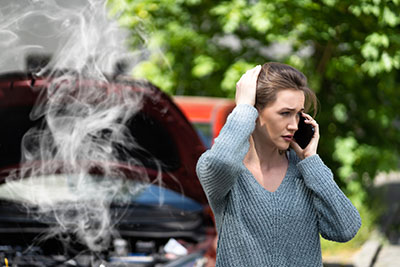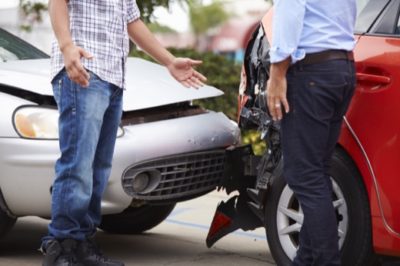- Car Accidents
There is an old adage in TV and movies that the ship’s captain is responsible for the acts of the crew. A similar rule applies in negligence law, because the tortfeasor (negligent driver or other negligent actor) is not necessarily the only person that is responsible for the plaintiff’s damages.
Third party liability theories are especially important in a state like Georgia. About 12 percent of drivers in the Peach State are uninsured, which is about the national average. However, many other drivers are under-insured, because the state only requires $25,000 in bodily injury and $25,000 in property damage coverage. In a major wreck that involves a newer vehicle, these amounts may not be nearly enough to provide fair compensation. So, many victims must look beyond the tortfeasor’s insurance company.
Employer Liability
Respondeat superior (Latin for “let the master answer”) copies the idea that a captain is responsible for the crew’s conduct, because under this third party liability theory, an employer is responsible for the negligent acts of an employee. In Georgia, as in most states, there are basically two elements.
First, the tortfeasor must be an employee. Most courts use the common-law definition for “employ,” which is “suffer or permit to work.” Under this interpretation, independent contractors, interns, and even volunteers usually qualify as employees, because one of the primary factors in this test is the amount of control the boss exercises over the worker. And, in all these situations, the employer normally dictates things like working hours, working conditions, the way the job is performed, delivery truck routes, and so on.
About the only grey area is a spouse or a friend of an employee who is driving the vehicle to get it serviced or filling in for a worker; some courts would agree that these people are employees for negligence purposes.
The other prong is course and scope of employment. Once again, courts define this phrase in a broad and plaintiff-friendly way. Normally, if the employee is doing anything that benefits the employer in any way, the activity is within the course and scope of employment. This activity could even include driving a company car with the company logo. An employer has a valid defense if the employee stole a car from the motor pool or took some other illegal action.
Georgia is a pure several liability state, which means that defendants are responsible only for the portion of damages that are directly attributable to their conduct.
Rented Vehicles
Particularly during the summertime moving months, there are a lot of rented large trucks on the road. Under normal circumstances, many of these big and unwieldy vehicles require a commercial driver’s license to operate. So, in addition to being inexperienced, many rental moving truck drivers are unfamiliar with the area, and they are distracted by their GPS navigators or otherwise trying to find their way.
A rental truck driver might seem to be an employee under the liberal Respondeat superior standard. But, because of the Graves Amendment, which is a little-known add-on to a federal omnibus spending bill, rental companies are not always responsible for damages. Like many such add-ons, there is almost no legislative history in support of 49 U.S.C. § 30106, other than a few minutes of floor debate. Representative Sam Graves (D-MO) introduced the bill to protect vehicle rental companies, because a few months earlier, a large company ceased operations in several states because it had to pay a multimillion-dollar lawsuit settlement in the Northeast.
The law purports to be a blanket grant of immunity in almost all cases. But on a closer inspection, there are some very large loopholes in Section (a).
- Trade or Business of Renting Vehicles: The law does not define this phrase, but it typically means that a company obtains most or all of its revenue from that source. Many companies, like U-Haul, are more like moving companies that happen to rent trucks, because in addition to vehicle rental, they sell moving supplies, rent storage spaces, and perform other services.
- Not Otherwise Negligent: When the Graves Amendment was passed, store clerks had no way to verify a driver’s license. But such checks are now much easier, and some courts have ruled that renting a vehicle to an operator with a suspended license is conclusive proof of negligence, and renting a vehicle to an operator with a poor driving record is evidence of negligence.
If the Graves Amendment does not apply, the vehicle rental company may be liable for some, or all, of the plaintiff’s economic and noneconomic damages.
Dram Shop Liability
If an impaired person causes a car crash or otherwise injures another person, the bar, restaurant, tavern, or other commercial alcohol provider may be liable for damages under Section 51-1-40 of the Georgia Code, which is the state’s dram shop law. To establish liability, the plaintiff must prove, by a preponderance of the evidence:
- Illegal Sale: In Georgia, a person commits a crime if they “willfully, knowingly, and unlawfully sells, furnishes, or serves alcoholic beverages to a person who is not of lawful drinking age” or “to a person who is in a state of noticeable intoxication.” The first type of illegal sale is objective, because the purchaser is either 21 or younger, and a fake ID or reasonable mistake is not a defense. The second type of sale must normally be proved by circumstantial evidence, such as an unsteady balance, slurred speech, or bloodshot eyes.
- Motor Vehicle: The establishment must know that the intoxicated or underage person will soon drive a motor vehicle. If the tortfeasor left alone, that fact is normally sufficient to prove knowledge.
Economic damages in these cases include items like property loss and medical bills; noneconomic damages include intangible items, like emotional distress and loss of enjoyment in life.
Contact an Aggressive Attorney
For prompt assistance with a car crash or other negligence claim, contact an experienced personal injury lawyer in Fayetteville at the Wade Law Offices. You have a limited amount of time to act.








